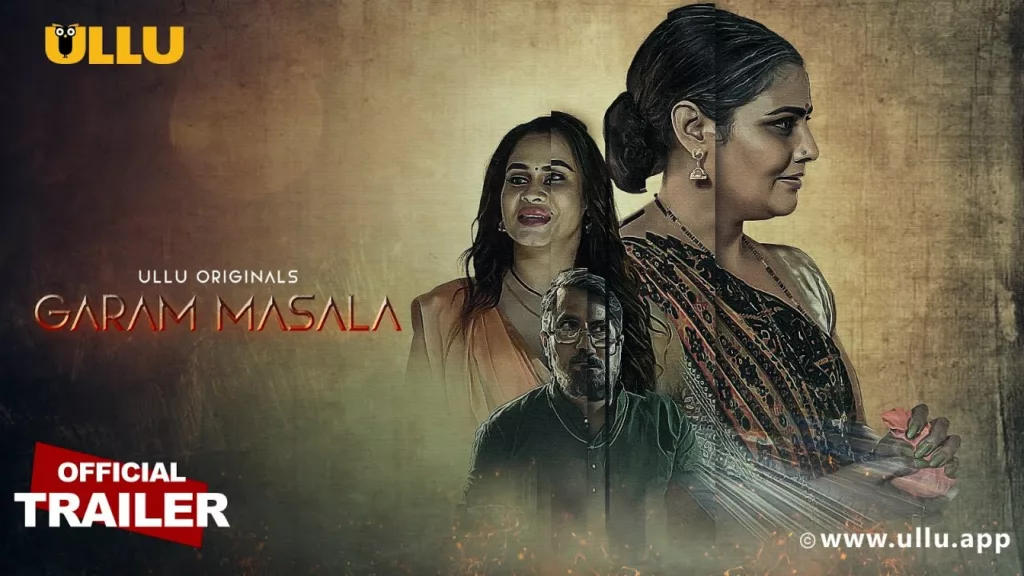Ullu: Watch Web Series & Movies | Latest & Free Updates
Is the allure of readily available entertainment clouding the ethical landscape of content consumption? The proliferation of platforms offering free access to web series and movies raises critical questions about copyright, censorship, and the future of the entertainment industry.
The digital age has ushered in an era of unprecedented access to entertainment. Streaming platforms, once the harbingers of convenience, now jostle for dominance in a market saturated with choices. Among these, the rise of platforms like Ullu and the shadow operations of sites like Movierulz paint a complex picture of consumer behavior, technological advancements, and the ever-evolving battle against piracy. While Ullu positions itself as a legitimate streaming service, the existence of platforms offering similar content, often for free and in dubious legality, forces us to confront the moral and economic implications of digital consumption.
Ullu, in particular, has garnered attention for its diverse content library. Described as a streaming platform, it provides a "wide variety of web series, movies and exclusive content." The platform caters to a diverse audience with various genres, from "thrilling suspense dramas to sizzling romantic tales," and it consistently promotes "exciting new releases of 2024." The platform's marketing strategy includes alluring taglines such as "Stay hooked with fresh Ullu episodes, the latest" and highlights specific series like "Palang Tod," a Hindi web series, indicating a focus on regional content to attract a broader viewer base. Ullu has also created originals such as "Matki", with an exciting premise.
However, the convenience of such platforms often comes with a darker side. The availability of content "for free in HD quality" and the emphasis on "hot web series" without explicit regard for copyright laws points to a broader issue. Movierulz, for instance, represents the problematic side of this digital shift. This platform, and others like it, operates within a grey area, potentially exploiting loopholes in legal frameworks and exploiting the work of content creators, as noted in the phrase, "How Ullu exploits the grey zone of Indian censorship." While Movierulz claims to provide a collection of Bollywood movies, Tamil, Telugu, Malayalam, and Kannada films, its operation raises substantial ethical and legal concerns.
The availability of such services directly challenges the established content distribution ecosystem. Traditional players, including film studios, production houses, and legitimate streaming services, invest heavily in content creation and distribution. Their revenue streams depend on copyright protection and the ability to monetize their work. When content is freely available through piracy or unauthorized distribution, it undermines these revenue models, potentially impacting the viability of the industry.
In a digital world where content is readily accessible, understanding the legal and ethical implications of digital consumption is crucial. This goes beyond merely accessing content; it involves recognizing the value of the creative work and the financial mechanisms that sustain the entertainment industry. It also highlights the need for constant vigilance, as the battle between content creators, distributors, and those who circumvent the established order persists.
The question then becomes: Can the entertainment industry and its audience navigate these complex challenges to create a sustainable and ethically responsible content ecosystem? Or will the pursuit of "free content" inadvertently erode the foundations of the creative process?
The ethical considerations are further complicated by the issue of censorship and content regulation, especially in a diverse cultural landscape such as India. Platforms offering uncensored content can clash with local cultural norms and legal restrictions, raising questions about the balance between artistic expression and social responsibility. Furthermore, as technologies advance and content distribution methods evolve, the ongoing challenge is maintaining copyright, ensuring fair compensation, and adapting legal frameworks to effectively manage the challenges of piracy.
The rise of services offering movies and web series for free in HD quality underscores the urgent need for a thorough understanding of the legal, ethical, and economic factors that shape today's entertainment landscape. The industry must respond to the challenges posed by these platforms and the ongoing evolution of digital technology. Addressing piracy, supporting creative work, and creating a sustainable content ecosystem are all essential to securing the future of the entertainment sector.
As for the specific platform like Ullu, the content is often aimed at specific demographics. The platform has garnered attention for its diverse content library. Described as a streaming platform, it provides a "wide variety of web series, movies and exclusive content." The platform caters to a diverse audience with various genres, from "thrilling suspense dramas to sizzling romantic tales," and it consistently promotes "exciting new releases of 2024." The platform's marketing strategy includes alluring taglines such as "Stay hooked with fresh Ullu episodes, the latest" and highlights specific series like "Palang Tod," a Hindi web series, indicating a focus on regional content to attract a broader viewer base.
The user is often given the choice to watch a selection of web series or films for free, which, at face value, makes it appear very enticing to viewers. This strategy might be an attempt to lure in new viewers who have not signed up to the service. The availability of such content raises questions about the long-term economic model for content providers and the potential for compromising copyright and content monetization.
A recurring theme in promotional materials is the concept of "Refer & Earn" programs, which encourage users to introduce others to the platform. This strategy, commonly used by many online services, relies on organic growth facilitated by user engagement. The promotion of "latest releases" and "hot web series" are important factors in keeping subscribers and attracting new customers, driving the overall user base.
The focus on regional content highlights the local appeal, but it also reflects the demand for diverse entertainment choices. This creates a wide variety of opportunities for platforms such as Ullu to tailor their services to regional tastes, thereby driving their growth in different markets. The inclusion of trailers, such as the "official trailer" for "Samne Wali Khidki," and other details, demonstrates the platform's approach to content distribution. These provide users with detailed, engaging previews of upcoming releases, and are very helpful in making choices.
The investigative nature of the content, such as "How Ullu exploits the grey zone of Indian censorship," introduces a layer of scrutiny, and emphasizes a growing emphasis on the ethical implications of streaming platforms. It is not just about offering content, but also evaluating the regulatory framework within which it works. Moreover, the discussion surrounding content consumption ethics highlights the complex interplay between consumer choices and industry practices. The platforms such as Ullu need to adhere to regulatory frameworks and make sure that they are committed to responsible practices.
The importance of transparency, whether it is in the form of movie reviews, box office data or cast insights are of great value to the consumers. They can also help them in making educated decisions regarding their viewing. Platforms can play an important role in providing relevant and useful details, thereby improving user experiences and building confidence among audiences.
The content also alludes to the broader challenges of online piracy and illegal content distribution, in the context of platforms. Services such as Movierulz, who operate in "grey zones," make the need for a comprehensive approach to copyright protection and content enforcement even more acute. The success of legitimate streaming platforms relies on upholding copyright, which is critical for the long-term viability and creativity of the industry.
The availability of streaming content and the increasing trend toward "watch[ing] any 4 web series or films for free" makes a significant difference for consumers. The increasing focus on offering a wide range of content options and a personalized way of recommending content is very important in a time when users are looking for what interests them.
The fact that you can get updates instantly, is an important part of making content relevant. As a result, platforms are also more likely to attract and retain subscribers. The integration of these features shows that the entertainment industry's growth is based on innovative technology, in order to adapt to the preferences of the audience.
The rise of Ullu and other similar platforms has brought to light a complex and multifaceted challenge. The need for content protection, the importance of content ethics, and the requirement for a balance between entertainment and regulatory compliance all point to the complexities within the entertainment industry. The future will depend on how well everyone in the industry works together to address these issues.
| Category | Details |
|---|---|
| Platform Name | Ullu |
| Type of Content | Web series, Movies, Exclusive Content |
| Genres | Various, including suspense, romance, drama |
| Key Features | New releases of 2024, Hindi web series like "Palang Tod," promotions like "Watch any 4 web series or films for free", regional content |
| Controversial Aspects | Exploitation of Indian censorship grey zone, potential copyright issues, links to platforms like Movierulz |
| Marketing Strategies | "Stay hooked with fresh Ullu episodes," "Refer & Earn" programs, promotion of specific titles and trailers. |
| Impact | Challenges to traditional content distribution, ethical concerns around content consumption, potential effect on industry revenues. |
| Example Web Series Mentioned | "Palang Tod," "Matki," and "Samne Wali Khidki" |
| Target Audience | Diverse, including regional audiences in India, and those looking for varied genres |
| Operating Model | Subscription based streaming, with free content offers to gain new users |
| References to other sites | Movierulz |
This content provides a deeper look at the many parts of the entertainment industry in a world where digital streaming is commonplace. As digital platforms change, a good understanding of these features will be very useful for both the viewers and the businesses.


